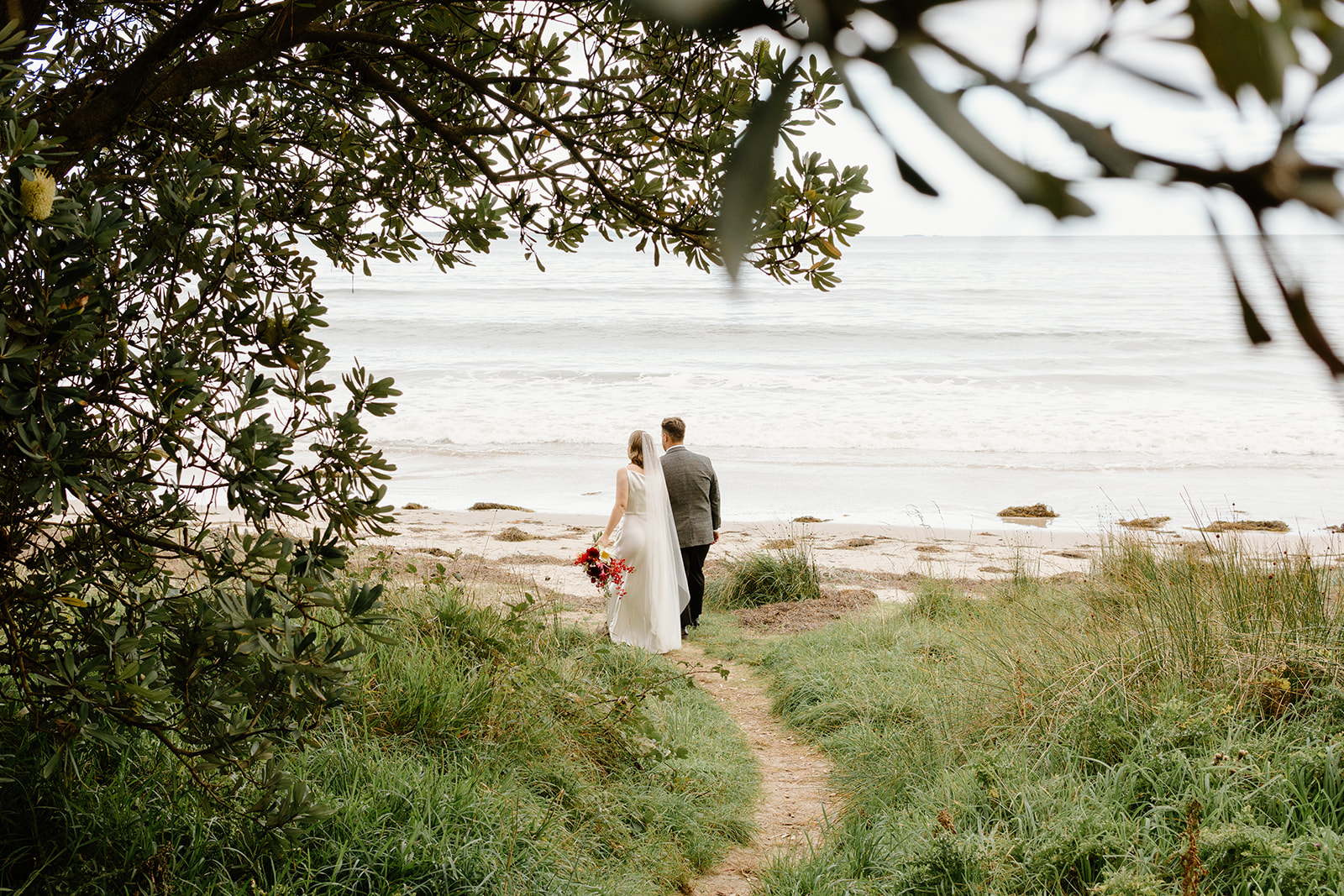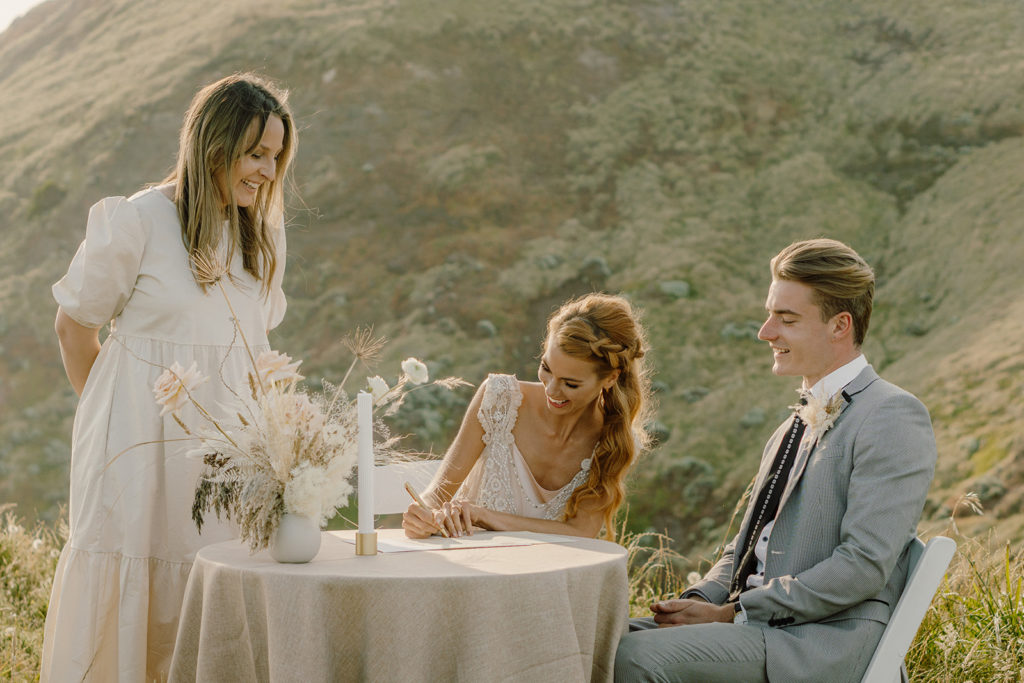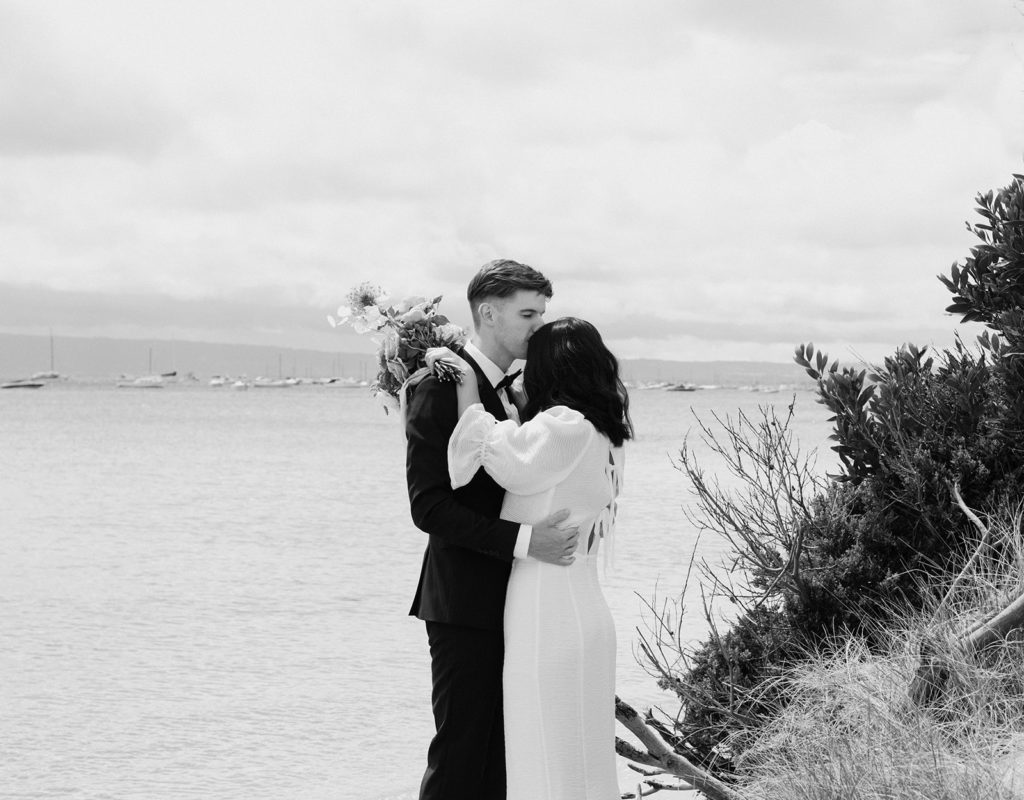What is an elopement vs. a traditional wedding. Let’s dive deep, and get to the route of this burning question thats been on your mind! Elopement have had a negative connotation around them for years now. Most likely because in the past, they were commonly known as a “secretive”, or “shameful” way of running off and getting married. While they no longer have the same meaning as they once did. It may still be something you haven’t considered, because you really didn’t know how they differ from a traditional wedding. So without further or do. It’s time to discuss the different areas of a wedding day, and how they differ with an elopement vs. traditional wedding!
Guests
Guest lists are a massive area, where an elopement differs from a traditional wedding. Traditionally weddings, don’t really have any rules as to how many guests you invite. It’s more so based off how many people you know and who you feel you should invite. Traditional weddings are typically more about inviting the majority of people in your life, simply because they are apart of your life. These wedding guests lists typically range from 50-200 guests.
While on the contrary, elopements are a lot more intentional with their guest lists. This could mean, it’s just the two of you + your two witness’ (witness’ can be family, friends, vendor’s, strangers, etc). Or it could be up to 20 of your closest loved ones. Elopements are more so about, creating a safe intimate environment for the couple to be themselves. In a more private and secluded setting. Eloping couples are typically more introverted, or strongly value privacy and intimacy within their lives. They don’t necessarily want 100 people they aren’t even that close with, hearing them profess their love to one another. Elopement guest lists are intentionally kept small, to perceive the intimate, intentional, and authentic feeling that comes with eloping.

Planning
While planning an Elopement and a traditional wedding can both be lengthy processes. They still do differ quite a bit. In Australia a “Notice of Intent of Marriage” must be lodged at least one month prior to marriage. Which means even for small elopements, you must plan for a least 4 weeks before marrying. Meaning they are definitely not a spur of the moment thing, and you must also plan for an elopement in the same regard as a wedding. While weddings on average take anywhere from 9-20 months to plan. Elopement’s can be planned anywhere from within 1 month, to on average 6-12 months.
Elopements are commonly more intentional, meaning the areas of your wedding day personally reflect who you are as a couple. Where as traditional weddings, more so reflect the traditions that happen at weddings. Neither is right nor wrong. Some couples absolutely love the traditional aspects of weddings, while others don’t feel so align with them. These are typically the type of couples that elope vs. the ones who have a traditional weddings. Planning a traditional wedding often includes, planning for a guest list. Organizing decor, tables, chairs, menu’s, invitations, catering, desert, etc. Whereas elopements are typically planned for just the two of you, or with a very small guest list. Which often takes the stress out of planning.
While you can get help with planning your wedding day, with planners, day of coordinators, stylists, etc. Ultimately having a smaller wedding/elopement will result in feeling less stressed or pressured during the planning process. Wedding are more of an event celebrated with lots of people. Whereas elopements are more laid back, intentional and intimate. Elopements are planned with the full focus of your day on you, what you love to do, and for only the ones who are the closest to you. While traditional weddings are planned for not just yourselves, but also a large guest list.
Budget
Most people think because elopements are smaller in size, that they are less expensive. And while that can be true. It’s not always the case. Elopements have less guests, which in turn means less money is spend on your guests. But eloping couples often use this budget to in turn create a more personalized experience out of their elopement day. This could be anything from having a destination elopement, choosing their dream honeymoon location, booking their #1 choice vendors, or splurging on a special elopement day activity (ie. boating, hot air balloon, helicopter ride, etc.)
While with weddings the budget is traditionally spend on the event, the guest list and creating the party of your dreams. Elopement budgets are spent on creating an intentional experience, that’s personalized to the two of you and typically what you dream day together would be.
The best way to budget for either a wedding, or elopement. Is to work through the areas of your day that you value most, and DIYing or cutting out the areas that don’t mean that much to you. For example, at a traditional wedding, you may highly value having amazing food for your guests, and ensuring that everyone has the best time on the dance floor. So you would spend the most money on your venue, food and DJ. And perhaps DIY your wedding decor and florals. And for an elopement, you may highly value the destination, and capturing your memories. So in turn you would splurge on photography, videographer, and your travel costs. And maybe you don’t have any other vendors there, keep it simple with no styling/decor, and create more of an experience than an event.
At the end of the day, your budget should be spent on the areas of your wedding day that mean the most to you.
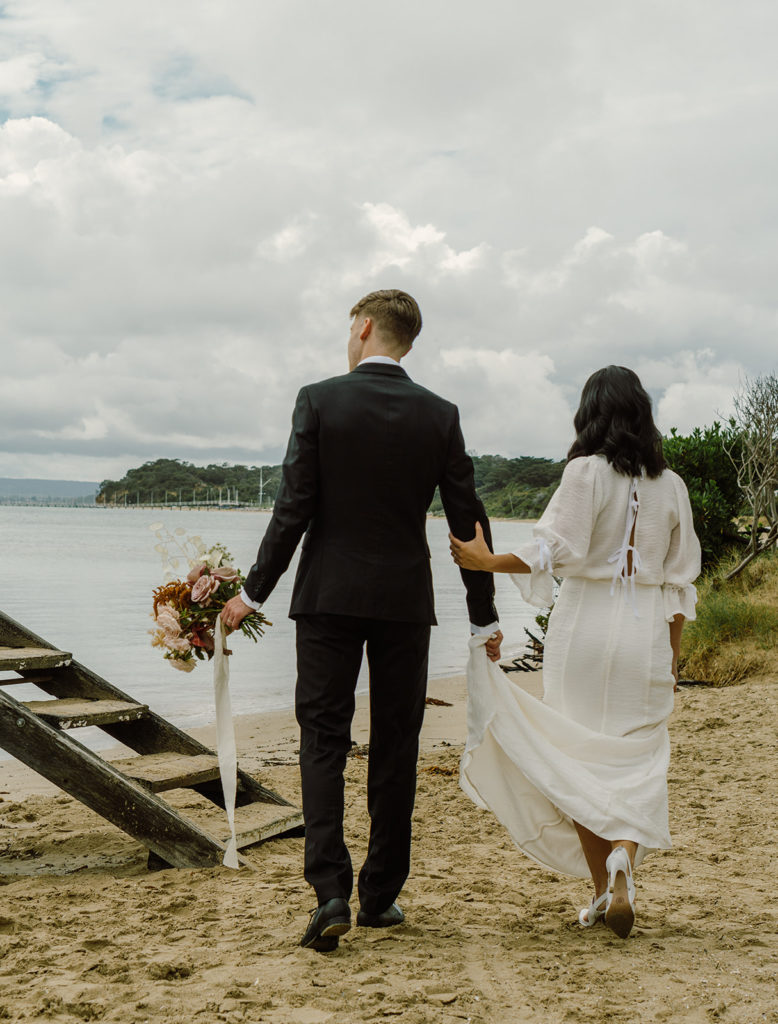
Types of legal ceremonies
There are two types of ceremonies that can take place on a wedding day. Traditionally at weddings the ceremony is conducted on the day, in front of all the guests and performed by a legal celebrant. The celebrant handles all the legalities, the papers are signed straight after the ceremony and the celebrant files all paperwork on your behalf.
While this is also a common way to legally get married for eloping couples. It’s not always the case. Eloping couples have another option when it comes to ceremonies. This option is to legally marry at a court house or city hall, and have your elopement experience on a separate day. This is called a Symbolic Ceremony. This typically happens when an eloping couple is either having a destination elopement, overseas or out of state. Or they are having an adventure elopement and planning on having a ceremony in the depths of the wilderness. And don’t want to worry about taking too many vendors with them.
Symbolic ceremonies are when the couple professes their promises and vows to one another in a private setting, without a celebrant present. They spend their elopement experience, celebrating themselves in their own authentic way. This is the date they truly got married, celebrated and will continue to celebrate their anniversary on for the rest of their lives. While the paperwork side of things will be filed back at their local court house, with a legal ceremony, in order to make their commitment legally binding. Filing the paperwork in your home state is the easiest way of getting married. As trying to organize the legalities in another place can become quite complicated and might not register back in your home state.
For more information on how to legally elope in Australia, check out this blog post.
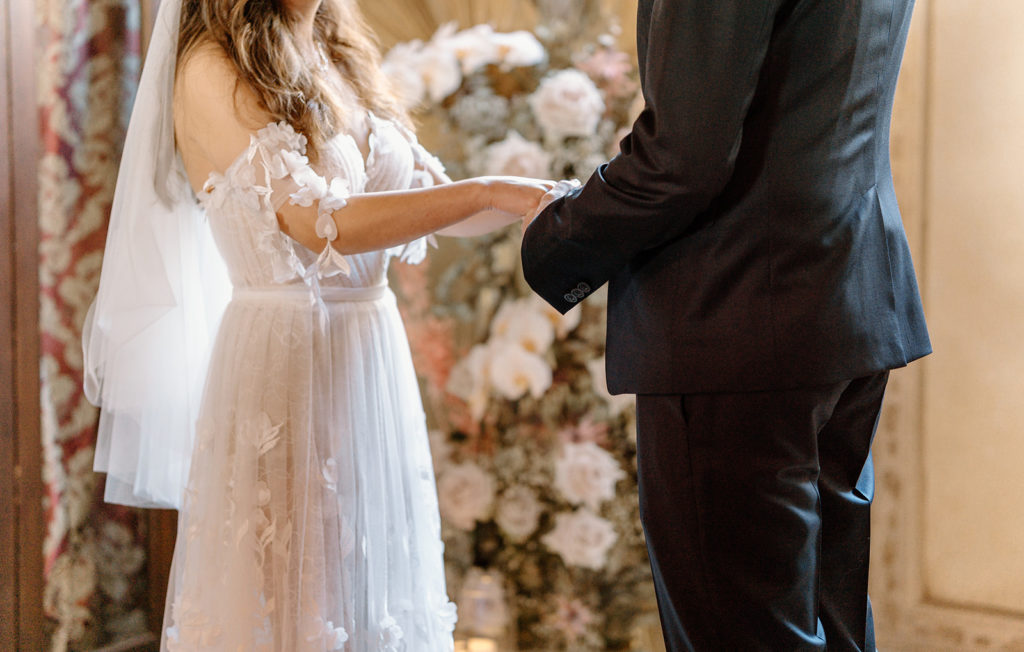
Timeframe
A commonly misinformed assumption between elopements and weddings, are that elopements are a shorter day, than a wedding day. This is commonly assumed because of the thought of having less people to celebrate with, must mean less time to celebrate. But we’re here to break that myth straight off the bat. There is absolutely no difference in the timeframe of an elopement experience vs. a wedding day. The timeframe of how long the celebration lasts, is completely up to the couple getting married.
On average a wedding day lasts up to 12 hours. From getting ready, to the final exit at the end of the night. Thought and consideration is gone into every area of this day. Typically vendors are hired for these same allotted hours to ensure the day runs smoothly and/or document the day. While this should be no different for an elopement day. With so much intention behind this decision to elope. Your day deserves just as much thought, consideration, and time spend enjoying. You also deserve to have your vendors right there with you through it all, guiding you, and documenting your most cherished memories.
We’ve seen elopement celebrations last up to 3 days. Heck I’m sure theres couples out there celebrating all week long! The point is, couples who elope typically are eloping for the experience that they desire. While they may have spent less money on guests. That doesn’t mean they aren’t spending it on creating an experience for themselves.
This could look like…
Day 1: Getting ready separately at two different Airbnb’s, First look by the lake, Head out on a scenic helicopter ride together to a secluded spot, Take part in a symbolic ceremony with private vows, followed by an scenic walk together through the wilderness, to return back to your helicopter ride to your private dinner by a chef at your Airbnb.
Day 2: Family joins you at your Airbnb for a small intimate legal ceremony, followed by a BBQ backyard dinner celebration with loved ones.
OR
This could be a 3 day weekend getaway in another state, staying at a resort with family. Each family group has their own cabin. You spend the weekend enjoying in activities, and meals together. On one of the days, you chose to elope and have your family there to join in the celebration with you.
There really are so many ways, you can experience an elopement. All that matter’s is that the experience is authentic and intentional to who you are. Don’t let anyone tell you, you deserve less than. Eloping is no different to a wedding in terms of the time you chose to celebrate.
Traditions
It’s no secret that weddings are traditional. And by no means, do we mean that every wedding is the same. Because they certainly are not. Just look at wedding blogs and magazines, theres so much amazing inspiration out there, all different and unique. But as a general rule, all weddings follow the same type of formula for the day. There are key traditions that come along with a wedding. Such as bridal parties, flower girl, ring barer, bouquet toss, first dance, cake cutting, etc. Although you can pick and choice which traditions you will incorporate, for the most part wedding days are filled with traditions and they run in the same way.
While elopements on the other hand. Are pretty much a clean slate, open to whatever type of timeline you desire. There is so much choice with elopements. Theres no set rules, or formula to follow. No exceptions to follow any traditions but the choice to choose if you’d like to incorporate a few. Elopements are more “go with the flow” type of days. Whereas weddings are structured to follow a schedule and ensure you fit in all the festivities on the day.

Location
Elopement’s can take place anywhere, or at least anywhere you are able to obtain a legal permit for. Which is surprisingly, almost anywhere! Elopements can take place in the middle of nowhere, out in the wilderness, at an Airbnb, your own backyard, a park down the street, on top of a mountain, at the beach, a clifftop – honestly where-ever your dream. There are almost no limitations when eloping, as the guest list is small and they are all about creating an experience, over hosting an event.
At the same time, weddings are a bit more limiting because of the guest size and that you are hosting an event. The more people involved, the most obstacles you have to consider. Such as transportation, accommodation, parking, safety, accessibility, toilets, etc. As you can imagine, your options begin to become more limiting.
This is a massive reason why most weddings take place at a venue. As these factors are then taken into consideration, and relieve the stress from you. You can still get married in a scenic location, you’ll either have to put more budget into accommodating for your guests, or consider hiring a venue in that desired location. You can always sneak away for an hour just the two of you, to get some scenic portraits in a more outdoorsy spot, then meet back up with your loved ones at the venue to continue celebrating. Weddings can be more limiting, but if a wedding is your dream day, then there is always a way to incorporate a dream location, if you want.
Time spent together
Did you know, an average wedding day lasts of 8 hours with average of 150 guests? This means that you would have have less than 30 seconds to interact with each guest. This isn’t even taking into account the time your spending alone with your partner throughout the day. Which would further mean, you’d have even even less time with each guest, and probably not even have enough time to speak with everyone invited. Of course, you can extend your hours of coverage, and shrink down the guest list. But all in all, weddings have less alone time between the two of you. And more time, interacting with your guests.
Elopements on the other hand, are primary spent between just the two of you. Even if you have 20 guests, you will have more than enough time to converse with everyone. Even more than just a quick “hi”. And have plenty of alone time with your spouse. Overall, elopements put the focus of your wedding back on the two of you. Allowing you to be more present, in the moment and soak in this experience with your spouse.
Intention of the day
We’ve mentioned it a few times now, that elopements are “intentional”. But what does that really mean in comparison to weddings. As we commonly know with weddings. The focus on a day tends to shift from being all about the couple. To being more about the event itself, entertaining and pleasing guests, and incorporating traditions. Although there is absolutely nothing wrong with any of those things. It’s no lie that the intentions of a wedding differ immensely from an elopement. While the overall intention is to get married. The intention behind a wedding is more about entertaining, throwing a celebration party and adhering to traditions.
Whereas, the intention behind an elopement is all about putting the focus of your day back on the two of you. Eloping is when you intentionally choose to keep things intimate, so you have more time together. They are typically less focused around creating an event, but more so an experience to be enjoyed in together. The intentions of these two days are drastically different. At the end of this all, intention is really what it all comes down too. What is your intention behind getting married? Is it to party and bask in your love with your friends and family? Or is it to share in a special experience with your spouse that feels entirely authentic and unique to you?
There is no right or wrong way to get married. Wedding’s aren’t for everyone. And neither are elopements. It’s all about finding what is right for you, and choosing to get married in the way that feels most authentic to you.
